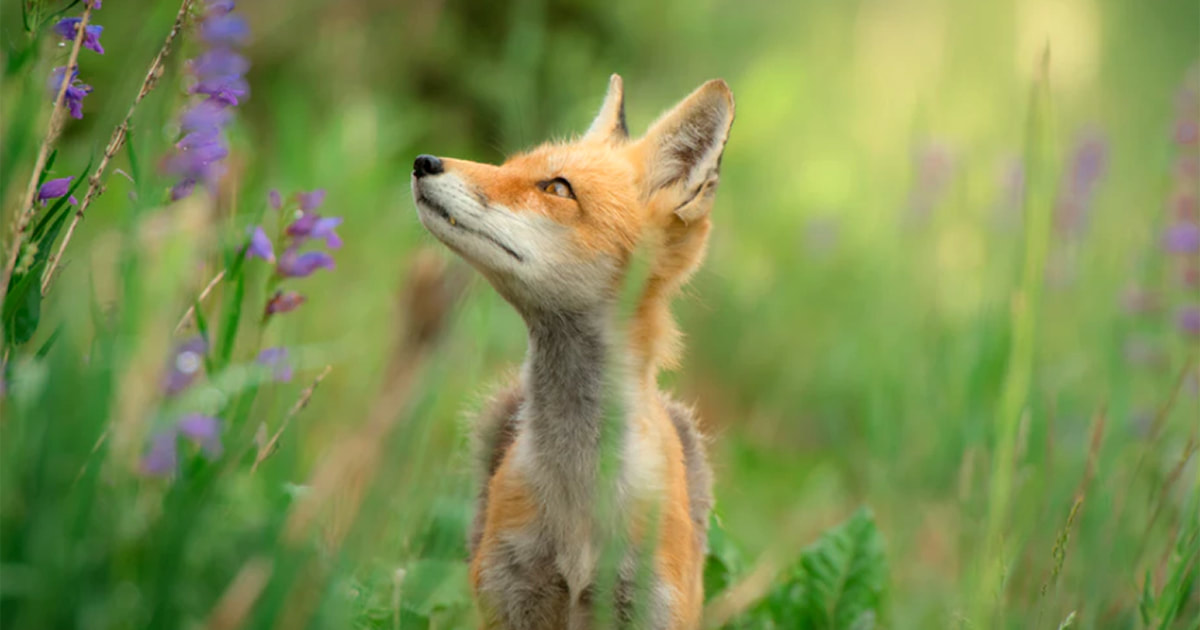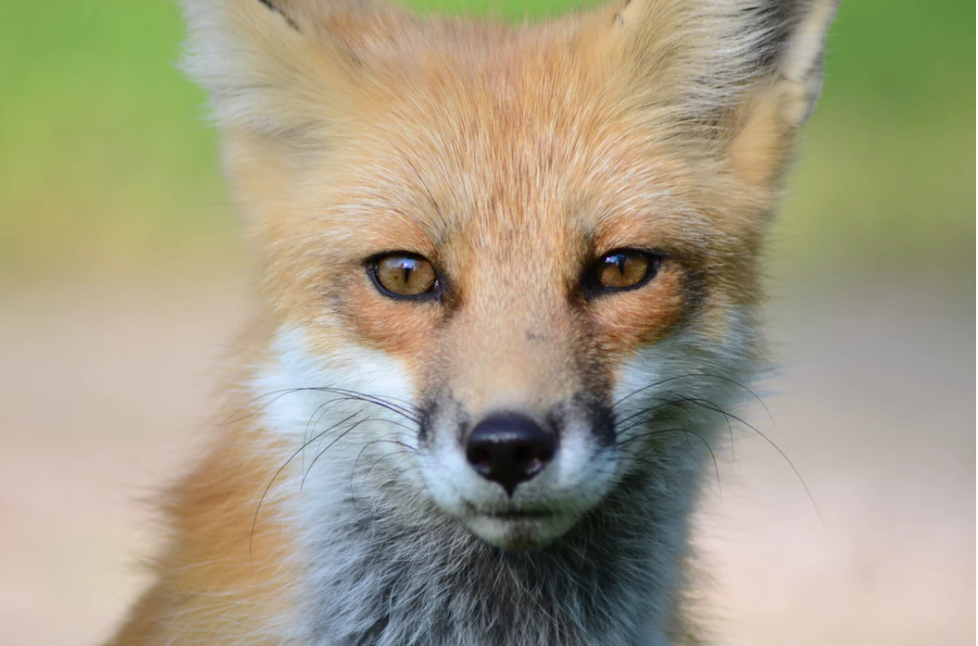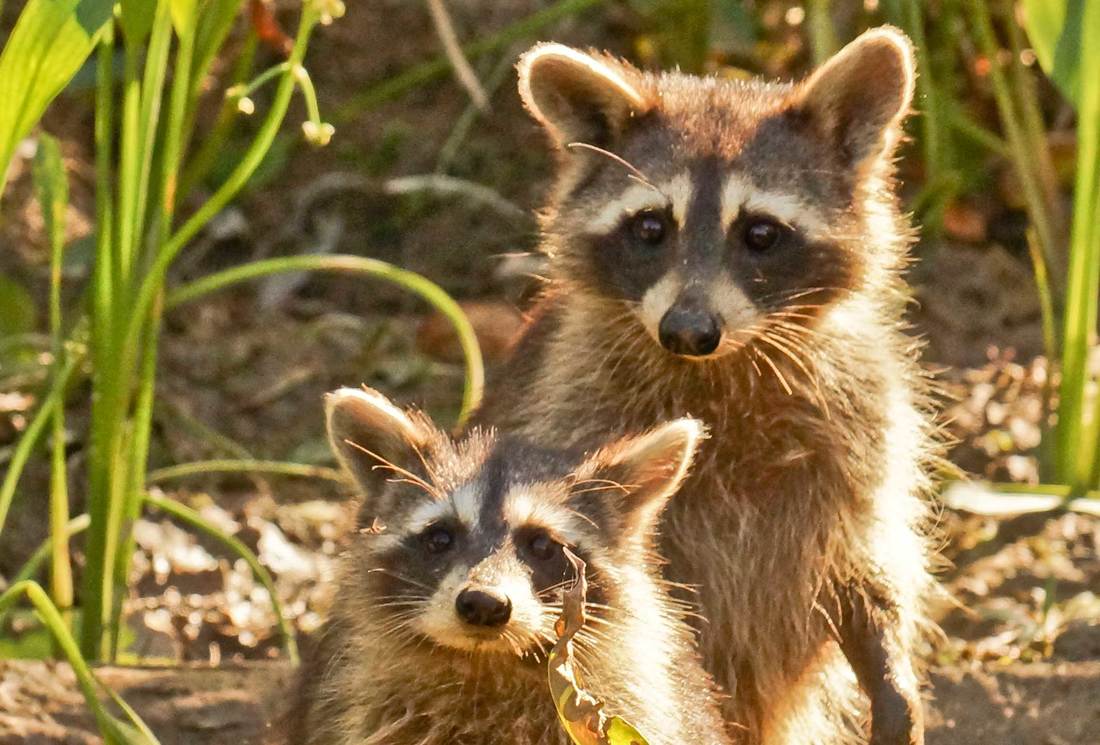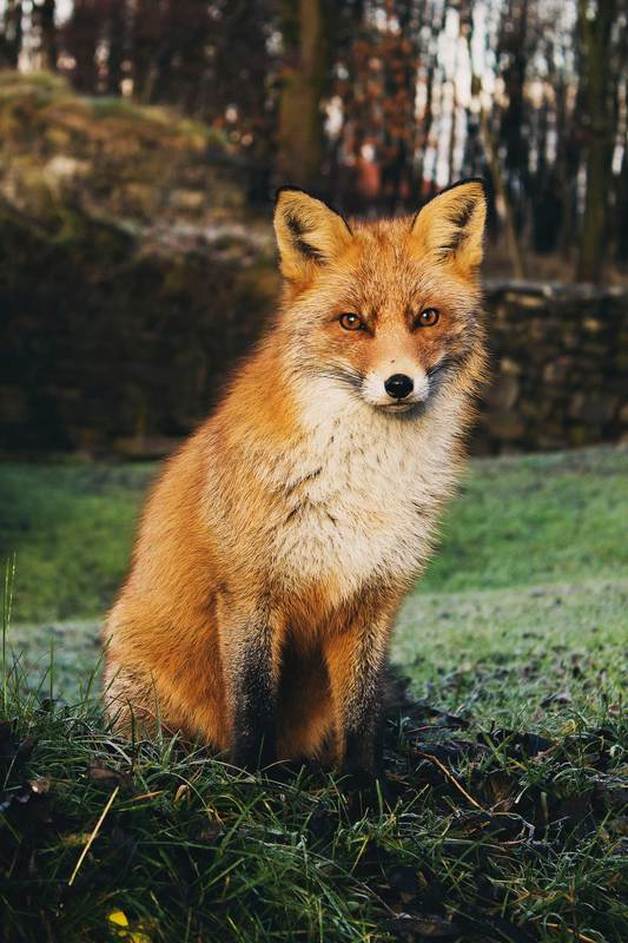We rarely glimpse these nocturnal neighbors, but when we do, it's another reason to appreciate life on the coast. Find out what makes these critters good neighbors and ways you can help offset shrinking wildlife habitat.
- story by LB Kovac and Ellis Anderson
One of the charms of Bay St. Louis is that the humans coexist with an astonishing variety of wildlife. Bald eagles and foxes, owls and ospreys, turtles and pelicans, squirrels and geckos and possums and raccoons – to name only a few.
In fact, Mississippi is home to a substantial number of land mammals alone: 63. For reference, the Magnolia state beats Louisiana, the state closest in land size, by 11 species. Some of our furry neighbors, like the gray squirrel or the eastern cottontail, are a welcome sight no matter where you see them--be it on a nature trail or in your own backyard. Yet some people may be dubious about critters like foxes, raccoons and opossums, critters important to the delicate Mississippi ecosystem. Missy Dubuisson, owner of Vancleave-based wildlife rescue organization Wild at Heart, says that these are some of the animals her organization most often sees. She says, “we receive calls from federal, state and local law officers, and the general public” on a regular basis. Dubuisson has been rehabilitating animals since she was a little girl growing up in Pass Christian. Her love for wild animals, especially America’s only marsupial, has earned her the nickname “the Possum Queen.”
According to Dubuisson, some homeowners erroneously believe that opossums, raccoons and foxes are aggressive or carry infectious diseases like rabies. Both turn out to be myths.
“Many people see a possum and they think they’re going to attack. That’s not going to happen,” Dubuisson promises. She goes on to explain that they’ll only get aggressive if they’re on the defense. “Rightly so.” As for rabies? The state has been surprisingly rabies-free for the past fifty years. According to the Mississippi Department of Health, “Land animal rabies is rare in Mississippi. Since 1961, only a single case of land animal rabies (a feral cat in 2015) has been identified in our state.” Experts found that the cat had contracted rabies after being bitten, not by another land mammal, but by a bat. Possums, foxes and raccoons mostly live invisibly alongside humans in urban or semi-suburban areas like Bay-Waveland. All three creatures are dubbed opportunistic eaters. Possums feed on everything from roaches to slugs. Raccoons have a varied diet too, eating crawfish to berries. Much of a fox’s fare consists of invertebrates, like grasshoppers and caterpillars. Fortunately for their human neighbors, all three eagerly devour nuisance rodents. The fox, in particular, is valued for its superlative ability to catch rats and mice.
But as more lots and wooded areas are cleared for development along the coast, the habitat for native wildlife is rapidly disappearing. The National Wildlife Federation (NWF) has several programs in place to offset shrinking habitats by encouraging individuals and communities to create new ones.
Individuals can participate with the 40-year-old program, Garden for Wildlife. This step-by-step program guides homeowners in transforming an ordinary yard into a haven for birds and mammals that we love to watch. NWF even offers a certification once their checklist has been fulfilled. Signage celebrates the efforts and encourages neighbors to do likewise. Schools, college campuses and place of worship also have wildlife habitat programs, tailored specifically for them. Entire cities, like Bay St. Louis or Waveland, can apply to be official Wildlife Habitat Communities. In addition to practicing more sustainable, nature-friendly lifestyles that benefit both humans and animals, these communities receive positive national recognition. If Bay St. Louis or Waveland chose to participate, we’d be in good company: Disney’s Epcot Center is a showcase Habitat Community. As is the Denver Zoo. And in Maryland, “Baltimore Gas and Electric has created habitats along its power line rights of way.” For more information on participating, click on the links above. In the meantime savor another sighting:
Comments are closed.
|
Categories
All
Archives
July 2024
|
Shoofly Magazine Partners
Our Shoofly Partners are local businesses and organizations who share our mission to enrich community life in Bay St. Louis, Waveland, Diamondhead and Pass Christian. These are limited in number to maximize visibility. Email us now to become a Shoofly Partner!
































 RSS Feed
RSS Feed























